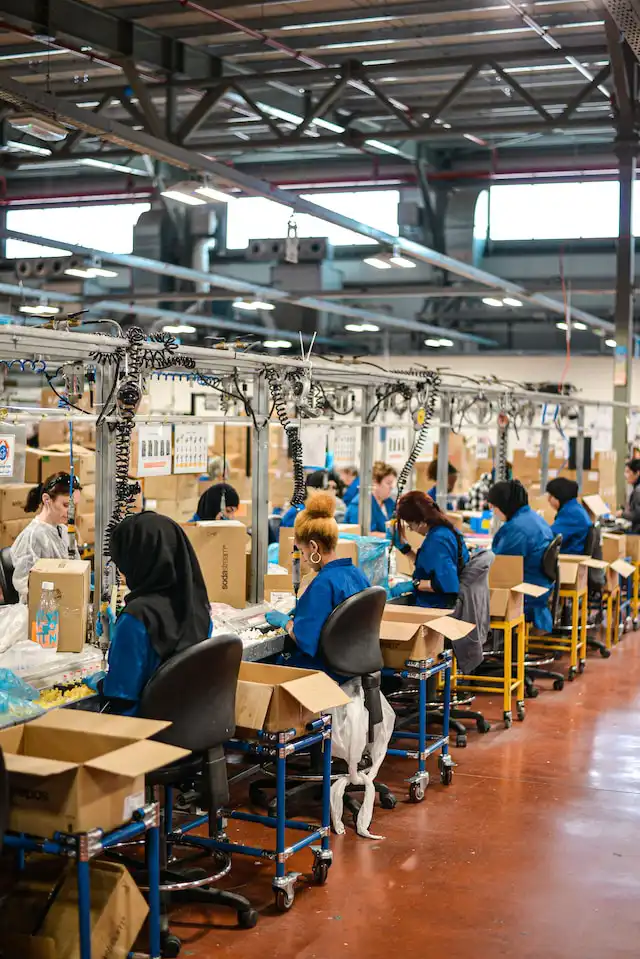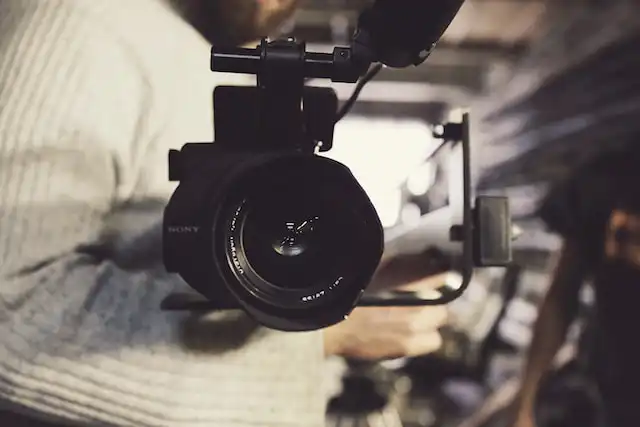
Europe Athletic Apparel and Footwear Industry Outlook to 2018
Eastern European Region to Drive Future Growth
Region:Europe
Product Code:KR220
July 2014
101
About the Report
The report titled “Europe Athletic Apparel and Footwear Industry Outlook to 2018 - Eastern European Region to Drive Future Growth” provides a comprehensive analysis of the athletic apparel and footwear market in Europe. The report covers various aspects such as market size of athletic apparel and footwear, market segmentation on the basis of geography by Western and Eastern Europe, by demand from men, women and children and by types of athletic wear product categories including knitted and crochet, non-knitted and non-crotchet athletic wear and athletic footwear categories. The report also entails recent trends and developments, porter’s five force analysis, SWOT analysis, market share of major players and future outlook and projections by geographies.
The athletic apparel and footwear market in Europe has emerged as one of the growing markets in the world due to increasing sports participation of the people, rising health awareness and growing disposable incomes. The market has registered a CAGR of 5.4% during 2008-2013 by rising from USD ~ million in 2008 to USD ~ million in 2013. China is the major supplier of sports clothing in Europe with ~% of the total athletic apparel import from the developing nations in the region in 2012.
Athletic apparel segment commanded the largest share of ~% share of the total athletic apparel and footwear sales in the region in 2013 which has risen from ~% in 2008 followed by athletic footwear which grew from USD ~ million in 2008 to USD ~ million in 2013. Western Europe comprising of countries such as Germany, the UK, France and others accounted for the highest share of ~% of the total sales of athletic apparel and footwear in Europe in 2013, followed by countries such as Russia, Poland and others of the Eastern European region which accounted for ~% of the athletic wear in Europe during the same year. Rich sporting tradition and high rate of participation in sports have driven the sportswear market in Eastern Europe over the years. The sportswear market in Czech Republic was estimated to be USD ~ million in 2009, growing at a rate of 1.3% over the period 2005-2009. Sports apparel contributed nearly USD ~ million of the total sportswear market revenue in 2009.
Adidas, Nike, Puma, Asics and others including K-Swiss, LiNing and others are some of the major players in the Europe athletic apparel and footwear market. The top 4 players accounted for ~% share in the total market in 2013.
There have been constant innovations and technological advancements in the field of athletic apparel and footwear market in order to provide the customers performance driven, comfortable and advanced sportswear. The increasing sports participation, shifting trend of sportswear to casual wear, rising health consciousness among people, has led companies to produce advanced athletic apparel and footwear meeting the needs of the customers.
The future of the Athletic apparel and footwear industry is expected to be favorable on account of rapidly growing social awareness regarding health benefits of playing sports, rising disposable income which will contribute to the demand for high performance sportswear in the near term and rising sports participation in Europe. The market is projected to reach USD 93 billion by 2018 growing at a CAGR of 6.2 % over the period 2013-2018.
Key Topics Covered in the report:
- ;
- ;Market Size of Europe Athletic Apparel and Footwear Market by Sales Value, Production Value and Volume Sales ;
- ;Value Chain of Europe Athletic Apparel and Footwear Market ;
- ;Market Segmentation of Europe Athletic Apparel and Footwear Market by Western and Eastern Europe, 2008-2013 ;
- ;Market Segmentation of Europe Athletic Apparel and Footwear Market by Demand from Men, Women and Children, 2008-2013 ;
- ;Import Value of Athletic Apparels in Europe and Destinations involved ;
- ;Trends and Developments in Europe Athletic Apparel and Footwear Market ;
- ;SWOT Analysis and Porter’s Five Force Analysis ;
- ;Competitive Landscape of Major Players in Europe Athletic Apparel and Footwear Market ;
- ;Future Outlook and Projections in Europe Athletic Apparel and Footwear Market, 2014-2018 ;
;
Products
athletic apparel and footwear, sportswear, sports apparel, knitted, crochet, non-knitted, non-crotchet athletic wear, athletic footwear, Female Swimwe
Companies
K-Swiss, LiNing, Adidas, Nike, Puma, Asics
Table of Contents
1. Europe Athletic Apparel and Footwear Industry Introduction
2. Europe Athletic Apparel and Footwear Value Chain
3. Europe Athletic Apparel and Footwear Market Size, 2008-2013
3.1. Europe Athletic Apparel Market Size by Value, 2008-2013
3.2. Europe Athletic Footwear Market Size by Value, 2008-2013
3.3. Europe Athletic Apparel and Footwear Market by Production Value and Sold Volume, 2008-2013
3.3.1. Europe Athletic Apparel Market
3.3.2. Europe Athletic Footwear Market
4. Europe Athletic Apparel and Footwear Market Segmentation
4.1. By Western and Eastern Europe, 2008-2013
4.1.1. Western Europe Athletic Apparel and Footwear Market, 2008-2013
4.1.2. Eastern Europe Athletic Apparel and Footwear Market, 2008-2013
4.2. By Demand from Men, Women and Children, 2013
4.3. By Types of Athletic Apparel and Footwear Categories, 2008-2012
4.3.1. By Knitted and Crochet Athletic Apparels Athletic Apparels, 2008-2012
4.3.2. By Non Knitted and Non Crochet Athletic Apparels, 2008-2012
4.3.3. By Types of Athletic Footwear, 2008-2012
5. Import Market of Europe Athletic Apparel, 2012
6. Trends and Developments in Europe Athletic Apparel and Footwear Industry
7. SWOT Analysis of Europe Athletic Apparel and Footwear Industry
8. Porter's Five Forces Analysis in Europe Athletic Apparel and Footwear Industry
Barriers to Entry
Bargaining Power of customers
Bargaining Power of Suppliers
Threats of substitutes
Competitive Rivalry within the Industry
9. Major Mergers and Acquisitions in Global Athletic Apparel and Footwear Industry, 2010-2014
10. Market Share of Major Players in Europe Athletic Apparel and Footwear Industry, 2013
11. Company Profiles of Major Players in Europe Athletic Apparel and Footwear Industry
11.1. NIKE
11.1.1. Company Overview
11.1.2. Business Strategy
11.1.3. Financial Performance, FY'2008-FY'2013
11.2. Adidas Group
11.2.1. Company Overview
11.2.2. Business Strategy
11.2.3. Financial Performance, 2009-2013
11.3. PUMA
11.3.1. Company Overview
11.3.2. Business Strategy
11.3.3. Financial Performance, 2008-2013
11.4. Asics
11.5. K-Swiss
11.5.1. Company Overview
11.5.2. Business Strategy
11.5.3. Financial Performance, 2009-2012
12. Future Outlook and Projections of Europe Athletic Apparel and Footwear Industry, 2014-2018
12.1. By Athletic Apparel and Footwear, 2014-2018
12.2. By Western and Eastern Europe, 2014-2018
12.3. Cause and Effect Relationship Between Industry Factors and Europe Athletic Apparel and Footwear Industry Prospects
13. Macro-Economic and Industry Factors Affecting Europe Athletic Apparel and Footwear Industry
13.1. Population in Europe, 2008-2018
13.2. Consumption Expenditure by Households, 2008-2018
13.3. GDP in Europe, 2008-2018
13.4. Polyester Fiber Production in Europe, 2008-2018
14. Appendix
14.1. Market Definition
14.2. Abbreviations
14.3. Research Methodology
Data Collection Methods
Approach
Variables (Dependent and Independent)
Multi Factor Based Sensitivity Model
Final Conclusion
14.4. Disclaimer
Why Buy From Us?

What makes us stand out is that our consultants follows Robust, Refine and Result (RRR) methodology. i.e. Robust for clear definitions, approaches and sanity checking, Refine for differentiating respondents facts and opinions and Result for presenting data with story

We have set a benchmark in the industry by offering our clients with syndicated and customized market research reports featuring coverage of entire market as well as meticulous research and analyst insights.

While we don't replace traditional research, we flip the method upside down. Our dual approach of Top Bottom & Bottom Top ensures quality deliverable by not just verifying company fundamentals but also looking at the sector and macroeconomic factors.

With one step in the future, our research team constantly tries to show you the bigger picture. We help with some of the tough questions you may encounter along the way: How is the industry positioned? Best marketing channel? KPI's of competitors? By aligning every element, we help maximize success.

Our report gives you instant access to the answers and sources that other companies might choose to hide. We elaborate each steps of research methodology we have used and showcase you the sample size to earn your trust.

If you need any support, we are here! We pride ourselves on universe strength, data quality, and quick, friendly, and professional service.















